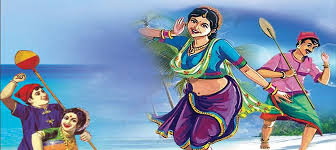The life of the Koli fishing community goes back many centuries, possibly to a time when Mumbai was just a cluster of seven small islands. Back then, the Kolis were the original people living in this region. For generations, they have relied on traditional fishing techniques to earn their living and support their families. As time passed, Mumbai grew into a busy and modern city. However, the Kolis held on to their roots and continued their way of life.
Daily Routine and role of women:
Their homes, known as “Koliwadas,” are small fishing villages that beautifully reflect their strong sense of culture, tradition, and community living. Even though urbanization has brought many changes, these vibrant neighborhoods still survive.
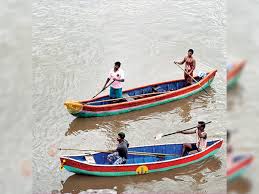
The daily routine of the Koli fishing community starts much before sunrise. Every morning, the men head out into the Arabian Sea, sailing in everything from small canoes to larger motorized boats. Depending on the day, these fishing trips can last just a few hours or sometimes continue well into the night, depending on how much fish they catch. Before they even set out, a lot of effort goes into preparing and fixing the fishing nets — a job that takes both patience and skill.
Traditionally, the Kolis have always used eco-friendly methods. For example, they made their own nets by hand and followed seasonal fishing patterns to keep the marine life healthy and balanced. Even though modern fishing tools and techniques are slowly becoming common, many Kolis still stick to their old ways that show deep respect for nature and marine biodiversity.
But it’s not just the men who keep this community going. Koli women are just as important in everyday life. As soon as the boats return with the catch, the women step in. They clean, sort, and then carry the fish to sell in local markets. In addition, many of them also dry fish — a traditional method of preserving it that is both useful and meaningful for their culture and economy.
As we can see, women are truly the backbone of the Koli fishing community. Not only do they help in the sale and processing of fish, but they also manage their homes, raise children, and keep the traditions alive. In fact, many Koli women are respected businesswomen and well-known faces in local markets.
What’s more, these women also play a key role in preserving and passing down their culture. Through stories, songs, and customs, they teach the younger generation about their roots. Thanks to them, the heritage of the Koli community continues to live on, even in the face of modern-day challenges.
Cultural Significance and Celebrations:
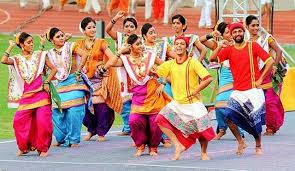
The life of the Koli fishing community is rich in culture and vibrant traditions. One of the most important festivals is Narali Purnima, celebrated in August, where fishermen offer coconuts to the sea, seeking the blessings to the god of the oceans. This marks the beginning of the new fishing season after the monsoon break.
Kolis in the East Indian Community:
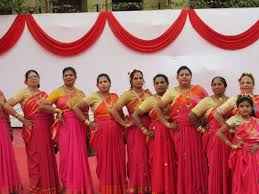
As the original inhabitants of Mumbai’s coastal areas, the Kolis have a deep connection with the land and sea. Interestingly, they also share strong linguistic, cultural, and religious ties with the East Indians, a Roman Catholic ethnolinguistic group rooted in Maharashtra. Over the years, while the Kolis have proudly held on to their unique identity through their customs, clothing, and fishing lifestyle, many also embraced Christianity during the time of Portuguese rule. As a result, they naturally blended into the East Indian cultural fold.
Their colorful celebrations, deep devotion to Mother Mary, and enthusiastic participation in church festivals reflect the shared heritage between the two communities. In fact, in villages like Versova, Worli, and Uttan, the Koli dialect, traditional food, and lively folk dances mix beautifully with East Indian traditions, creating a rich cultural blend.
Despite the rapid urban growth around them, the Kolis continue to keep their customs alive. Through their resilience, they proudly contribute to the vibrant cultural fabric of the East Indian community, preserving a legacy that remains full of life and meaning.
Jesus with Fishermen:
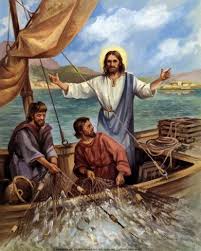
Jesus’ close relationship with fishermen is a powerful symbol of humility, faith, and purpose. In the Bible, we see that His very first disciples were fishermen — Simon Peter, Andrew, James, and John. These men, though simple and hardworking, were not chosen for their position or knowledge, but for their open hearts and willingness to follow Him.
When Jesus said, “Follow me, and I will make you fishers of men” (Matthew 4:19), He was inviting them into something greater.
Throughout His ministry, Jesus stayed close to fishermen. These acts not only showed His divine power but also how much He cared for ordinary people.
Koli Dances Performed in Schools:
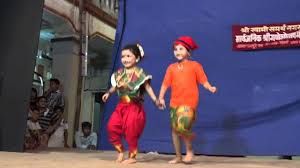
By including these dances in school events, students not only enjoy the fun of performing but also learn to appreciate the rich culture of Mumbai’s original inhabitants. In fact, it helps keep the Koli heritage alive for future generations. Teachers often add Koli dance routines to annual day functions, inter-school competitions, and heritage festivals. As a result, students develop a sense of pride and awareness about coastal communities and their valuable role in society. But the celebration of Koli dance doesn’t stop at schools. It is also a joyful part of weddings, birthday parties, and festivals in Koli neighborhoods.
Education and Modern Influence:
In the past, education within the Koli community was limited, mainly due to financial hardships and the demanding nature of the fishing profession. However, over time, things have started to change. Nowadays, more children from Koli families are attending schools and even pursuing higher education in colleges and universities.
This shift is adding a new and positive dimension to the life of the Koli community. While it’s true that some young people still choose to follow in their parents’ footsteps and continue with fishing, many others are now exploring different career paths. For example, some are becoming engineers, doctors, artists, or professionals in various fields.
Of course, modernization brings both challenges and opportunities. But even so, many in the Koli community are learning how to find the right balance. They are managing to hold on to their traditional values while also welcoming new knowledge, technology, and progress.
Environmental Awareness and Conservation:
The life of the Koli fishing community has always been deeply connected to nature. For generations, the Kolis have had a close understanding of the sea including the tides, fish migration patterns, and changes in seasons. This wisdom, passed down through stories and daily experience, gives them a strong sense of environmental awareness something that is often missing in today’s modern fishing industries.
However, things have become more difficult in recent years. With the rise of pollution, climate change, and overfishing, their traditional way of life is under serious threat.
Even so, the Koli community is not giving up. In fact, many Koli leaders are now stepping forward and playing active roles in protecting the environment. They are working hard to promote sustainable fishing practices and are raising their voices against construction projects that harm marine life and coastal areas.As a result, the Kolis are becoming key players in coastal conservation efforts.
Challenges Faced and Efforts Toward Empowerment:
Even though the Koli community holds deep historical importance and cultural richness, their life today is filled with many challenges. As cities grow rapidly, urbanization has started taking over their traditional coastal lands. Due to this, coastal development projects, pressure from real estate builders, and the lack of legal recognition for Koliwadas (their villages) have become serious threats to their way of life.
At the same time, climate change is making things worse. Fishing cycles have become less predictable, and the number of fish available is shrinking. On top of that, large commercial fishing trawlers often sweep up most of the catch, leaving very little for traditional Koli boats.
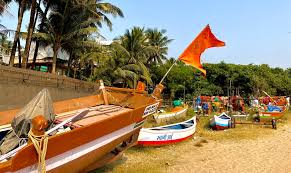
Adding to their difficulties, many Koli families face bureaucratic issues. For instance, they often lack official documents to prove ownership of the lands they’ve lived on for centuries. Because of this, they are at constant risk of being displaced. Their struggle for identity, livelihood, and space is very real — and ongoing.
In response, several NGOs, government programs, and community efforts have stepped in to support the Kolis. Skill development workshops, training in financial literacy, and free legal aid camps are helping many families stand stronger. These efforts have made a real difference in empowering the community and giving them tools to face modern challenges.
Moreover, digital platforms are playing an exciting role. Through social media and online storytelling, younger Kolis are now sharing their culture, traditions, and daily life with the world. This not only spreads awareness but also builds a sense of pride in their roots.
Thankfully, there are also efforts to include Koli voices in urban planning and policy discussions. This ensures their concerns are heard and considered at the government level.
Interestingly, while many young Kolis are entering modern careers, they often stay connected to their heritage. By coming back to support their families and community, they help keep traditions alive.
Koli Cuisine – A Culinary Heritage:
One of the most fascinating parts of the life of the Koli fishing community is their delicious cuisine. Known for its bold flavors and incredibly fresh seafood, Koli food has become popular not just in Koliwadas but all across Mumbai. Dishes like Bombil fry (Bombay duck), Surmai curry (Kingfish curry), and Prawns masala are loved by many for their unique taste and home-style preparation.
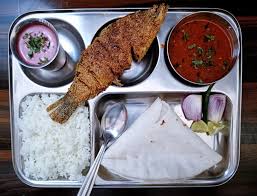
What makes Koli cuisine special is its use of local ingredients. Fresh coconut, kokum, and traditional spices bring out rich, coastal flavors. These recipes, often passed down from one generation to the next, carry more than just taste — they carry stories, memories, and a deep sense of belonging.
For the Kolis, food is much more than just something to eat. It’s a symbol of who they are and where they come from. In every dish, there is a connection to their ancestors and a strong bond with the sea that has supported their way of life for centuries.
Preserving a Priceless Coastal Heritage:
In today’s fast-changing world, their cultural festivals, dance forms, oral stories, and fishing skills are part of a rich heritage that cannot be replaced. Moreover, there is a growing demand to include Koli history in school books. After all, the Koli community played a key role in building and supporting coastal cities like Mumbai. Recognizing their efforts is essential to give them the place they deserve in our shared history.
The life of the Kolis is truly inspiring. It tells a story of living in balance with nature, staying strong through challenges, and holding on to vibrant traditions. This makes it even more urgent to support and protect their community. As we think about their contributions, we should remember that they offer more than just seafood. They have also enriched our culture in many ways.
In the end, the story of the Kolis is not only about one community. It is part of the larger story of India’s heritage. So, we must cherish it and make sure it is preserved for the generations to come.
